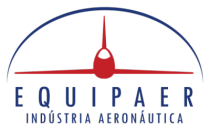Bay Area Transit Transformation Gets $18 Million Boost
First Commitments Spur Near-Term Projects to Improve Bus, Light Rail Service
SAN FRANCISCO, May 23, 2024 /PRNewswire/ -- The Metropolitan Transportation Commission (MTC) this week approved an $18.3 million allocation to fund eight near-term transit priority projects in San Jose, San Francisco, Redwood City and the East Bay. These investments are the first to be made through the $30 million Bus Accelerated Infrastructure Delivery (BusAID) program established as part of the Bay Area Transit Transformation Action Plan to implement quick-build solutions designed to improve service at problem 'hotspot' locations identified by transit agencies throughout the region. Each of the eight approved projects is slated for completion in the next one to three years:
-- Park Street Transit Signal Priority and Signal Optimization (Alameda):
this project will install transit signal priority and optimize signal
timing at four intersections along Park Street from Alameda Avenue to
Otis Drive, reducing delays for AC Transit routes 20, 21, OX and 663.
-- Monument Corridor Transit Speed Improvements (Concord): This project
will transit priority signals along Monument Boulevard between Detroit
Avenue and Mohr Lane, and will relocate and reconfigure bus stops to
improve efficiency and accessibility. County Connection routes 11, 14,
16, 311, 314, 611, 613, 616 and 619 will benefit from more reliable
service and reduced travel times.
-- International Boulevard Transit Lane Delineation (Oakland): this project
will reduce delays for AC Transit's Tempo (1T) line, reduce speeding by
drivers on non-transit vehicles and improve corridor safety between
14(th) Avenue and 42(nd) Avenue through the installation of vertical
treatments to separate the existing bus lanes from general purpose
lanes, and by painting the bus lanes red to deter non-transit vehicles
from using the bus lanes.
-- El Camino Real Bus Boarding Islands & Bus Stop Balancing (Redwood City):
To reduce delay for SamTrans routes ECR, 79, 270, 278, 295, 296, 2960
and 397, this project will fund the planning and design of bus boarding
islands at stops along El Camino Real between Whipple Avenue and
Dumbarton Avenue in Redwood City and unincorporated North Fair Oaks.
-- K-Ingleside Rapid Project Ocean Avenue Quick Build (San Francisco):
Spanning Ocean Avenue from Junipero Serra Blvd. to Geneva Avenue, this
project will increase service reliability and reduce travel times for
Muni's K-Ingleside light rail line by installing longer and wider
boarding islands, adding red transit lanes, and implementing signal
timing refinements and turn restrictions.
-- VTA Frequent Network Cloud-Based Transit Signal Priority (San Jose):
This project will install next-generation transit signal priority at 174
intersections along VTA's Frequent Network in San Jose, reducing delays
for numerous bus routes, including 25, 26, 61, 64A, 64B, 70, 71, 72, 73,
77 and 500.
-- Vision Zero Senter Road East San Jose Safety Corridor Project (San
Jose): This project will reduce delays for VTA routes 70, 72 and 73 by
installing bus boarding islands along Senter Road between Story Road and
Monterey Road.
-- Alvarado-Niles Road Part-Time Transit Lane Pilot (Union City): To reduce
congestion-related delays for AC Transit route 97 and Union City Transit
routes 1, 3 and 5, this project will install for a two-year pilot period
a part-time transit lane along Alvarado-Niles Road from Decoto Road to
Almaden Boulevard, providing buses with a dedicated lane during hours
with peak traffic congestion.
MTC approved funding for these projects at its regularly scheduled May meeting, after each had been endorsed last month by the multi-agency Regional Network Management Council. Project recommendations were developed based on a two-stage screening process that evaluated potential rider benefits (time savings), equity considerations, and feasibility and readiness. Each project will include pre- and post-implementation evaluation to quantify project benefits. The remaining balance of $12 million in BusAID funding will be used for future funding rounds, when additional projects are identified and ready for implementation.
MTC is the transportation planning, financing and coordinating agency for the nine-county San Francisco Bay Area. Caltrans owns and operates the state highway system.
View original content to download multimedia:https://www.prnewswire.com/news-releases/bay-area-transit-transformation-gets-18-million-boost-302154843.html
SOURCE Metropolitan Transportation Commission




